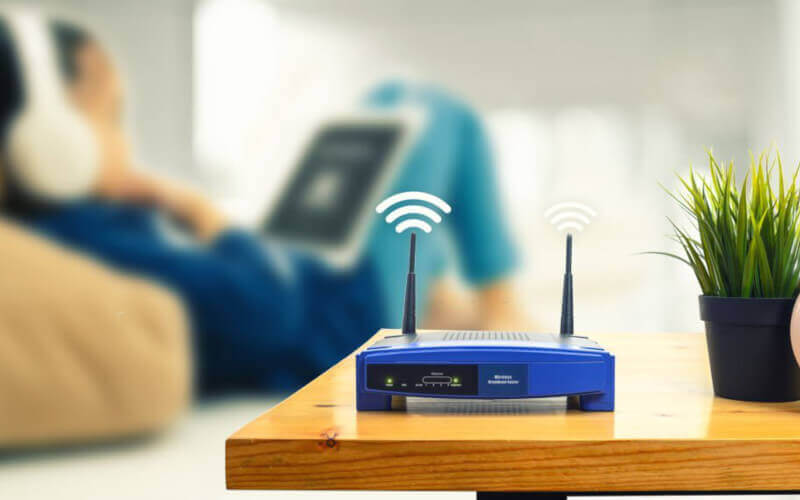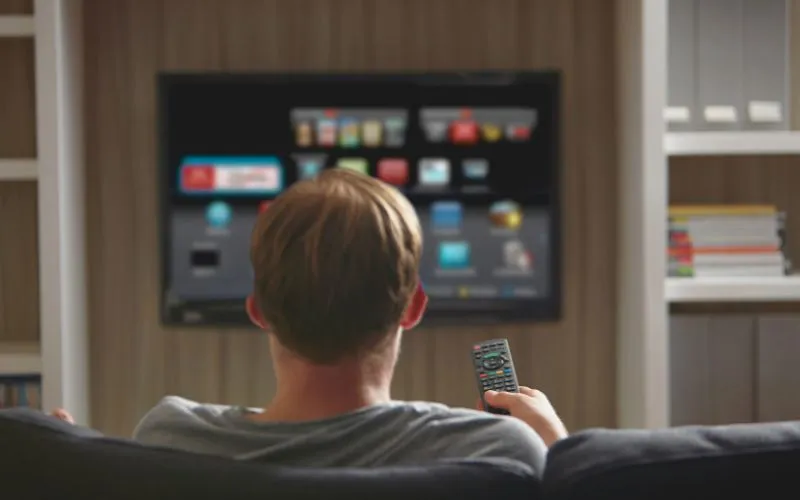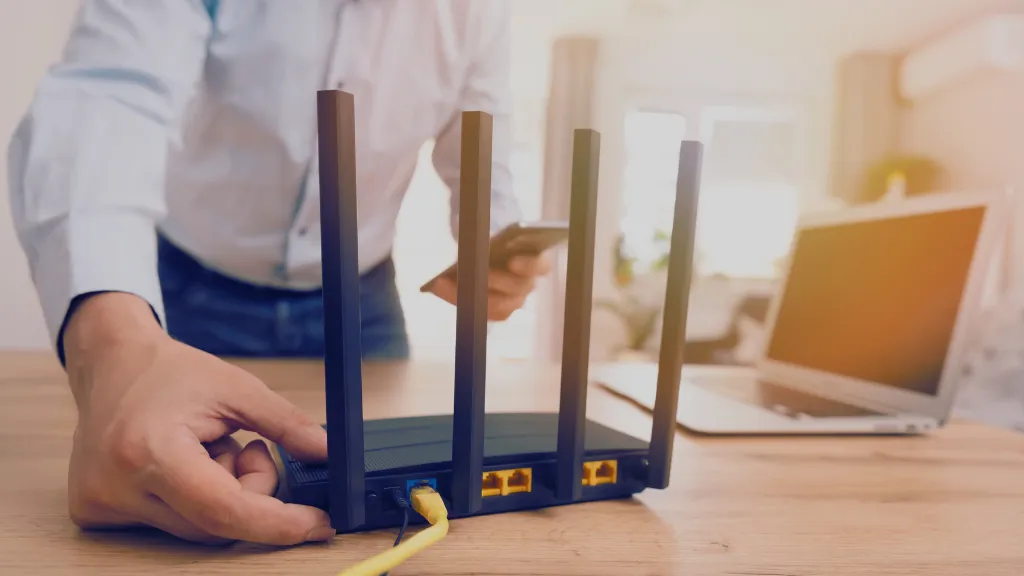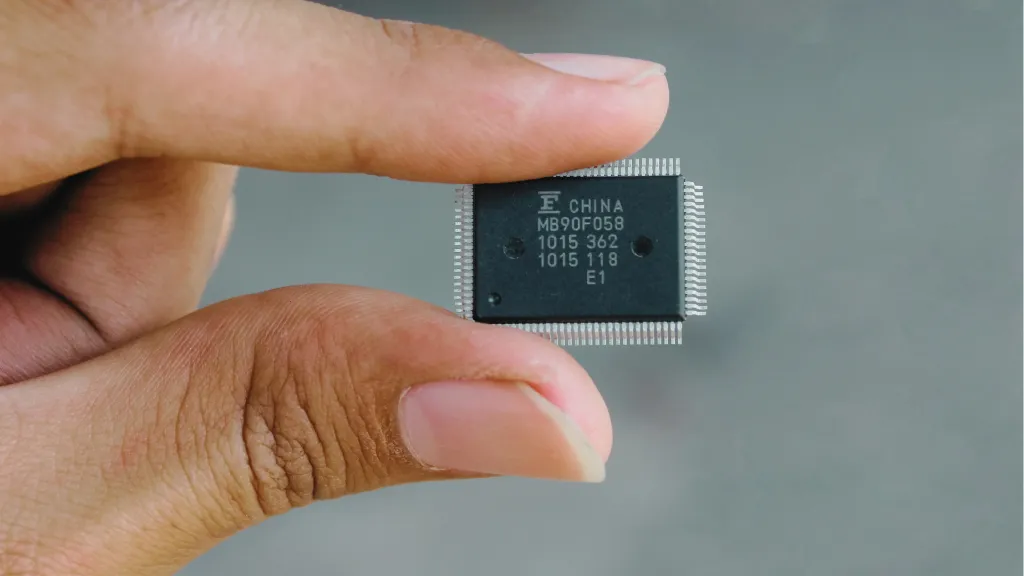Have you ever wondered what the difference is between Bluetooth and WiFi? If you have, then you’re in the right place. In this article, I’ll dive into the nitty-gritty details of both technologies and compare them side by side.
Now, you may have a general idea of what each one is and what they do, but do you know the difference between them? And more importantly, do you know when to use one over the other?
Let’s get started!
What is Bluetooth?
Bluetooth is a wireless communication technology that supports short-range data transfers between devices. It was invented in 1994 and named after a 10th-century Norwegian king, Harald Bluetooth.
The idea behind Bluetooth was to create a universal, low-power, low-cost solution for wireless communication between telephones, computers, and other devices.
So, how does Bluetooth work?
Well, it works by using radio waves to communicate between devices. A Bluetooth device transmits a signal that other Bluetooth devices can receive within a certain range, typically around 10 meters.
When two Bluetooth devices are in the range of each other and have been paired, they can exchange data. This data exchange can happen in various forms, such as sending a file from your phone to a speaker or using a Bluetooth headset to listen to music on your phone.
Bluetooth is used in many applications, from wireless earbuds to wireless gaming controllers. One of the biggest advantages of Bluetooth is its low power consumption, which makes it great for small devices that need to run for a long time on a single battery charge.
Additionally, Bluetooth devices are often more affordable than their WiFi counterparts.
However, Bluetooth does have some limitations. One of the biggest is range. As mentioned earlier, Bluetooth devices can typically only communicate over a range of 10 meters.
This makes Bluetooth unsuitable for applications that require a longer range, like connecting to the internet in a large building. Another limitation is that Bluetooth can only handle a limited amount of data simultaneously, so it may not be the best option for high-bandwidth applications like streaming video.
Bluetooth is a reliable and budget-friendly technology for transferring information between devices nearby. Although its practicality makes it an attractive option for many, the limited range and data transfer speed may render Bluetooth impractical for some undertakings.
What is Wi-Fi?
WiFi, short for Wireless Fidelity, is a technology that allows for wireless Internet connectivity. It was developed in 1997 as an alternative to the wired Ethernet technology that was commonly used for local area networks (LANs).
So, how does WiFi work?
WiFi uses radio waves to communicate between a device and a wireless router. The router acts as a gateway to the internet, and when a device is connected to the router, it can access the internet.
The device and the router communicate using a specific frequency, which allows them to transfer data at high speeds.
Wi-Fi is used in many applications, from home and office networks to public hotspots. One of the biggest advantages of Wi-Fi is its range. Because WiFi uses radio waves, it can cover much greater distances than Bluetooth.
This makes it possible to connect to the internet from anywhere within the range of a wireless router. Additionally, Wi-Fi can handle much more data than Bluetooth, making it a great choice for high-bandwidth applications like streaming video.
However, WiFi also has some limitations. One of the biggest is power consumption. Because WiFi requires more power to transmit and receive data, it’s not always the best choice for small devices that run for a long time on a single battery charge.
WiFi can also be more susceptible to interference from other devices and structures, resulting in a slower and less reliable connection.
WiFi is a great technology for wireless internet connectivity. Its long range and high bandwidth make it a popular choice for many applications, but its higher power consumption and susceptibility to interference may make it unsuitable for some applications.
Differences between Bluetooth and WiFi
Now that we have discussed Bluetooth and WiFi technology separately let’s take an in-depth look at the main distinctions between them.
Here are some of the most noteworthy differences:
- Range: Bluetooth has a much shorter range than WiFi. Bluetooth devices typically range around 10 meters, while WiFi can cover much greater distances, depending on the strength of the signal and the presence of obstacles.
- Bandwidth: WiFi can handle much more data than Bluetooth. This means WiFi is better for high-bandwidth applications like streaming video or playing online games. On the other hand, Bluetooth is better suited for lower-bandwidth applications like sending a file from your phone to a speaker.
- Power Consumption: Bluetooth is designed to be low-power, making it a great choice for small devices that need to run for a long time on a single battery charge. On the other hand, WiFi requires more power to transmit and receive data, so it’s not always the best choice for small devices.
- Security: Bluetooth and WiFi have security measures to protect against unauthorized access. However, WiFi has a more robust set of security protocols, including WPA2 encryption and firewalls, which makes it more secure than Bluetooth.
- Interference: WiFi can be more susceptible to interference from other devices and structures, like walls and microwave ovens, resulting in a slower and less reliable connection. On the other hand, Bluetooth is less susceptible to interference, but its short range may still be affected by obstacles.
With different ranges, bandwidths, power consumption levels, security protocols, and interference potentials, it cannot be easy to decide between Bluetooth and WiFi. However, by assessing the key distinctions of each technology, you can determine which is best for your particular application.
Thus empowered with a full understanding of both technologies’ capabilities and shortcomings, you can make an informed decision in any given situation.
When to use Bluetooth vs. Wi-Fi
When should you choose Bluetooth or WiFi? It all depends on your individual needs and goals.
Here are a few scenarios to consider:
- Short-range connections: If you need to connect two devices over a short distance, Bluetooth is a great choice. For example, you might use Bluetooth to connect your phone to a wireless speaker or to transfer a file from one device to another.
- Low-power devices: If you’re using a device that needs to run for a long time on a single battery charge, Bluetooth is a better choice than WiFi. Because Bluetooth is designed to be low-power, it will use less energy and keep your device running longer.
- High-bandwidth applications: If you need to transfer large amounts of data quickly, WiFi is the better choice. WiFi can handle much more data than Bluetooth, so it’s a great choice for applications like streaming video or playing online games.
- Wide-area coverage: If you need to connect to the internet from a wide area, WiFi is the better choice. Because WiFi can cover much greater distances than Bluetooth, you’ll be able to connect to the internet from anywhere within the range of a wireless router.
- Security: If security is a concern, WiFi is the better choice. Because WiFi has a more robust set of security protocols, including WPA2 encryption and firewalls, it will help protect your data from unauthorized access.
Evaluating the nuances between Bluetooth and WiFi is essential to select the best option for your individual needs.
Whether you need a reliable connection over a short range, require low power consumption, or aim for fast transfer speeds of larger data sets, understanding how each protocol works will help ensure that any decision made is well-informed.
Conclusion
Bluetooth and WiFi are wireless technologies with their own strengths and weaknesses. Understanding the key differences between the two can help you make an informed decision about which technology is best for your needs.
Bluetooth is great for short-range connections and low-power devices, while WiFi is better suited for high-bandwidth applications and wide-area coverage. And when it comes to security, WiFi has a more robust set of security protocols, making it the better choice for sensitive data.
Bluetooth and WiFi have their place in the world of wireless technology, and the choice between the two will depend on your specific needs and requirements.
Whether connecting to the internet, sending a file, or streaming video, it’s important to choose the right technology to ensure the best possible experience.






